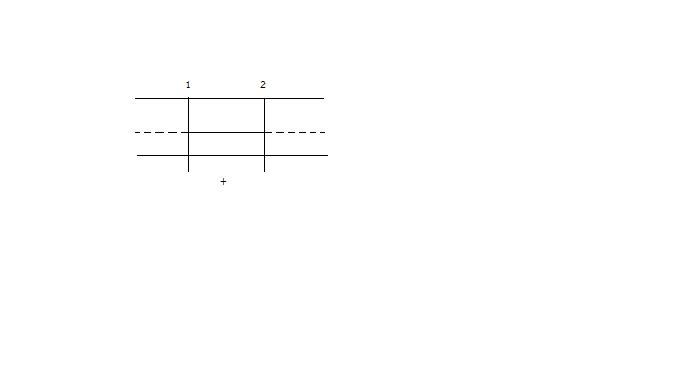[math]\begin{cases} (x^-1)/2+(x+3)/3-(x^2-1)/4>(5+x+4x^2)/(12) \\ ((x-2)^2)/6-((x-1)^2)/4+(x+1)/2>(x+2)/3+1/6 \ \end{cases}[/math]
[math]\begin{cases} (x^-1)/2+(x+3)/3-(x^2-1)/4>(5+x+4x^2)/(12) \\ ((x-2)^2)/6-((x-1)^2)/4+(x+1)/2>(x+2)/3+1/6 \ \end{cases}[/math]
;
[math]\begin{cases} (6x^2-6+4x+12-3x^2-3)/(12)>(5+x+4x^2)/(12) \\ (2(x-2)^2-3(x-1)^2+6(x+1))/(12)>(4x+8+2)/(12) \ \end{cases}[/math]
;
[math]\begin{cases} 6x^2-6+4x+12-3x^2-3-5-x-4x^2>0 \\ 2(x^2+4-4x)-3(x^2+1-2x)+6x+6>4x+10 \ \end{cases}[/math]
;
[math]\begin{cases} -x^2-2+3x>0 \\ 2x^2+8-8x-3x^2-3+6x+6x+6>4x+10 \ \end{cases}[/math]
;
[math]\begin{cases} x^2-3x+2>0 \\ -x^2-1>0 \ \end{cases}[/math]
;
[math]\begin{cases} x^2-3x+2>0 \\ x^2> -1 \ \end{cases}[/math]
;
Studiamo le due
disequazioni singolarmente
1)
[math]x^2-3x+2>0[/math]
[math]\Delta=b^2-4ac=(-3)^2-(4 \cdot 2 \cdot 1)=9-8=1[/math]
[math]x_{1,2}=(-b+-\sqrt{\Delta})/(2a)=(3+-\sqrt1)/2=(3+-1)/2 => x_1=2 ^ x_2=1[/math]
.
Siccome il coefficiente di
[math]x^2[/math]
e il segno della disequazione sono discordi,
prenderemo come soluzione accettabile l'intervallo interno, per cui la soluzione sarà:
[math]1>=x>=2[/math]
.
2)
[math]x^2> -1[/math]
Qualsiasi valore di
[math]x[/math]
elevato al quadrato sarà sempre maggiore o uguale a zero, e quindi di
[math]-1[/math]
,
quindi soluzione della disequazione sarà:
[math]RR[/math]
Pertanto
[math]\begin{cases} 1>=x>=2 \\ AA x in RR \ \end{cases}[/math]
;
Soluzione del sistema sarà l'intersezione delle singole soluzioni delle disequazioni che lo compongono.

Quindi la soluzione sarà:
[math]1>=x>=2[/math]
.







 Accedi a tutti gli appunti
Accedi a tutti gli appunti
 Tutor AI: studia meglio e in meno tempo
Tutor AI: studia meglio e in meno tempo